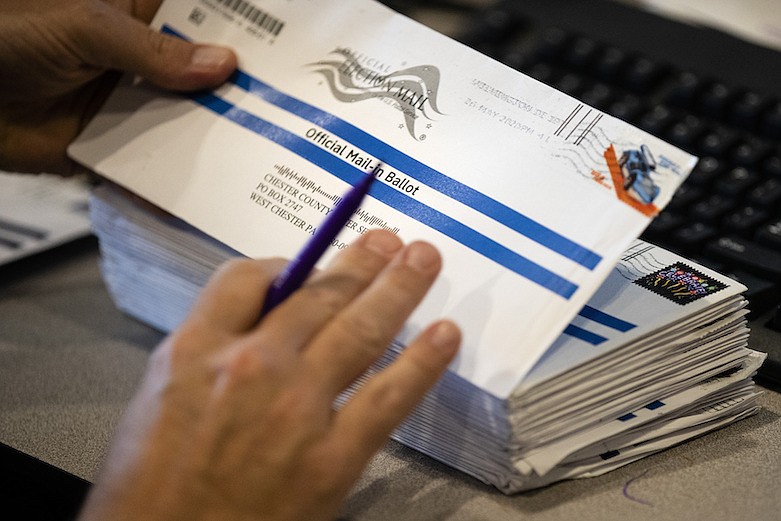NASHVILLE, Tenn. (AP) - A judge on Thursday said "shame on you" to state officials for not abiding by her order that allows a vote-by-mail option for all of Tennessee's 4.1 million voters during the coronavirus pandemic, saying she now had "to clean up confusion" from the state's decision to reword its absentee voting applications on its own.
Davidson County Chancellor Ellen Hobbs Lyle ordered changes to the absentee form but stopped short of ordering sanctions against the state for not complying, citing tough budget times for the state during the pandemic. But she warned "there always is the specter of criminal contempt if after today's orders there's still noncompliance and there's disobedience."
"Shame on you for not following that procedure and just taking matters into your own hands," Lyle said at Thursday's hearing. "So, I'm calling the state out on that, for not adhering to the standards of legal process, and not adhering to the order."
Only a handful of states are not offering by-mail voting for everyone during the pandemic, though two-thirds of states allowed the practice before the outbreak.
In her ruling last week, Lyle didn't order Republican Secretary of State Tre Hargett's office to create a new absentee application form with a COVID-19 option, though it still did. The judge's ruling directed voters to select an existing illness and disability box.
The judge said the state's change ended up segregating COVID-19 absentee forms from those of other voters, something her order did not do. The state may have even caused a "chilling effect," Lyle said.
Plaintiffs attorney Steven Mulroy said it's possible that segregating the ballots would allow the state to "disenfranchise" them if the state wins on appeal or if the expansion of mail voting is blocked during that appeal. The state has said that's not the case, and that the new form only aimed to reduce voter confusion and limit risk of voters sending in incomplete applications.
On Thursday, the judge ordered the state to remove the coronavirus-specific excuse from the application and instead add wording about COVID-19 to two existing excuses on the application that already deal with caretakers and illness. The change to the form and new guidance to local election officials are due Friday.
Plaintiffs attorneys also pointed out that for most of last Friday, the state told local election officials not to send out absentee applications for people citing COVID-19 or illness, saying they were working on the new form and citing the state's push to stay the expansion. The state later told local officials to start using the new form.
The judge also said she is looking into another order for state officials to instruct counties what to do and say when someone requests an absentee ballot due to COVID-19.
Nashville, for one, is already sending out absentee ballots. Shelby County, which includes Memphis, and Knox County, which includes Knoxville, are still in the process of finalizing their ballots for the Aug. 6 primary and haven't sent out absentee ballots yet for that reason, local officials have said.
"If it is a complete application, and an application from an eligible voter whose signature is verified, then they are accepting that application regardless of the reason that is posted on there," said Janet Kleinfelter of the attorney general's office. "Then, if they have ballots, because not all counties yet have their ballots, they are mailing those ballots out."
Plaintiffs attorneys questioned that claim. They cited a Knox County voter, Hannah Benjamin, who said she submitted an absentee application Tuesday, and heard from a county election official after she accidentally didn't note which party's ballot she wanted and her reason for absentee voting.
In court declarations, both of them said the official, David Twiggs, told her a judge could reverse the COVID-19 option. If that occurred and a ballot had already been mailed to her, Benjamin would need to vote provisionally if she wanted to vote in person, or she would risk a felony for double voting, Twiggs said in his declaration.
State election officials have recommended preparing as though all 1.4 million registered voters 60 and older will cast mail-in ballots in the primary.
___
Adrian Sainz in Memphis, Tennessee, contributed to this report.
